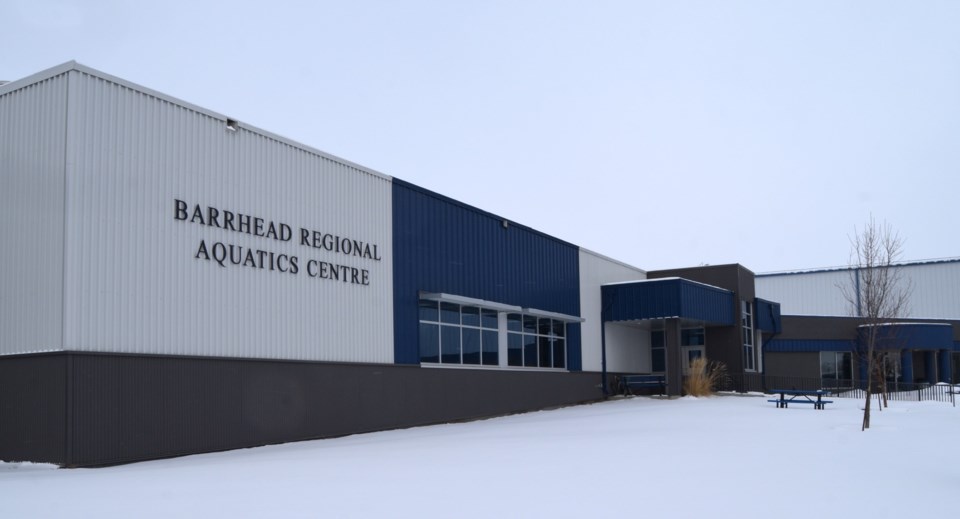BARRHEAD-The Town of Barrhead's indoor recreation facilities will likely remain closed for the foreseeable future.
That is what communications co-ordinator Jennifer Pederson told the Barrhead Leader during a Feb. 8 interview.
We reached out to the municipality to clarify where all the town's indoor recreation facilities and their activities fall in the province's four-step reopening framework announced Jan. 29.
Stage 1, began Feb. 8. The municipality's indoor recreation facilities include the Agrena (ice rink and walking track), aquatics centre, curling rink and bowling alley. It should be noted that although the curling rink and bowling alley are owned by the town they are operated by
As part of Stage 1, in-person dining is allowed at restaurants and indoor fitness activities can resume one-on-one training sessions, by appointment only. Certain children's sports and performance activities are also allowed, but only in a school context.
In early December, the town closed all of its indoor recreation facilities in response to province-wide COVID-19 public health measures.
"The [plan] is vague and seems to be a constant changing goal-post depending on public pressure," she said.
On Feb. 6, the province announced that under Step 1 practices and lessons for indoor and outdoor team-based sports and athletics could resume.
A maximum of 10 people can participate in practices, including coaches and team members. The restrictions state participants can remove masks during training (but that they must maintain physical distancing of three-metres) and that access to change rooms must be limited and no spectators are allowed. Games would also be prohibited.
"I feel that the lobbying Alberta Dance and minor hockey did on behalf of the government is what caused the change," Pederson said.
Alberta chief medical health officer Dr. Deena Hinshaw denied that was the case in response to a question from the media during her Feb. 8 COVID-19 briefing.
"When we made the decisions regarding the measures we put in place there has always been an attempt to balance the harms of COVID-19 against those of restrictions," she said. "The evidence presented was related to the impact the restrictions were having on children's overall health and development and there was a reconsideration that group physical activities, with the additional precautions, would be moved into Step 1."
Because the province's reopening framework is so vague, Pederson said she isn't sure what stage the town's recreation facilities would fall under. However, if she were to hazard a guess, it would be Step 3, as part of the possible easing of restrictions on adult sports.
Then again she said, it also could fit under Step 2, with the easing of indoor fitness activities. Alberta needs to have lowered its COVID-19 hospitalization to 450. The earliest the province could move to Step 2, is March 1 given the requirement 21-days between stages.
"In this stepped approach, [the province] was understandably vague, there was nothing concrete, the potential of this or that happening," she said. "This is something we have never dealt with before ... and there is so much grey area [the COVID-19 cabinet committee] and Dr. Hinshaw can imagine every unique case (the types of recreational activities)."
Regardless of what stage the town's recreation can open their doors.
On Jan. 2, Town of Barrhead councillors voted to remove the Agrena's ice and the aquatic centre drained the pools and hot tub before Christmas.
"It is not as easy as just recalling employees and opening the doors," Pederson said, adding in the case of the aquatic centre it would take a minimum of eight days to refill the pools.
She said while she understands people are frustrated, the municipality has to weigh several factors, from the financial impact it would have to whether or not it would be beneficial for their employees to be recalled, depending on the restrictions in place on the facility.
Using the example of Step 1, where activities are limited to a one-on-one basis or limited team activities.
Pederson said by returning to work on a limited basis staff could put themselves in even in a greater financial hardship by impacting their Employment Insurance and other COVID related benefits.
"There are so many moving pieces to it that people don't consider," she said.
Barry Kerton, TownandCountryToday.com



